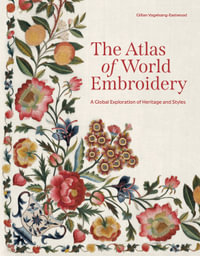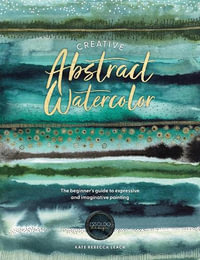In this brilliant collection of diverse works-essays, short stories, poems, translations-which spans a lifetime's engagement with art, John Berger reveals how he came to his own unique way of seeing. He challenges readers to rethink their every assumption about the role of creativity in our lives.
Paying homage to the writers and thinkers who influenced him, he pushes at the limits of art writing, demonstrating beautifully how his artist's eye makes him a storyteller, rather than a critic. His expansive perspective takes in artistic movements and individual artists-from the Renaissance to the present-while never neglecting the social and political context of their creation. Landscapes-alongside Portraits-completes a tour through the history of art that will be an intellectual benchmark for many years to come.
About the Author
John Berger was born in London in 1926. His many books, innovative in form and far-reaching in their historical and political insight, include To the Wedding, King, and the Booker Prize-winning novel, G. Amongst his outstanding studies of art and photography are Another Way of Telling, The Success and Failure of Picasso, Titian: Nymph and Shepherd (with Katya Berger), and the internationally acclaimed Ways of Seeing. He lived and worked in a small village in the French Alps, the setting for his trilogy Into Their Labours (Pig Earth, Once in Europa and Lilac and Flag). His collection of essays The Shape of a Pocket was published in 2001. His latest novel, From A to X, was published in 2008. The Three Lives of Lucie Cabrol, produced by Complicite and based on a story by Berger, toured for three years between 1994 and 1997. About Looking, published by Bloomsbury in April 2009, was the follow-up to the seminal Ways of Seeing, one of the most influential books on art in the 20th century. He died in early 2017.
Industry Reviews
"Essential ... reminds us that all good writing comes only from good (that is, patient, attentive, loving) looking."
--Andrew Marr, New Statesman "Berger's prose manifests an ethics of the committed gaze, a great sympathy for the human animal in pain and a great anger for the political conditions that extend that pain unnecessarily. As he wrote recently: 'What has prompted me to write over the years is the hunch that something needs to be told and that if I don't try to tell it, it risks not being told.' The humbleness of the word 'hunch' in that statement tells you all you need to know."
--John Douglas Millar, Frieze
"Essential reading not just for our political moment but outside it. He was a monument, a world of his own; at the same time, his thinking and his art--which are the same thing--address themselves at once to the past, the present, and the future."
--n+1
"Life has more light and colour after an encounter with Berger."
--Art Newspaper
"Berger is a masterful observer, a trait that lends his writing a profound element of artistry: these essays read like sketched studies of an as-yet-painted masterwork ... these worldly essays are timeless, inspiring works of critical observation."
--Kirkus
Praise for John Berger:
"John Berger teaches us how to think, how to feel how to stare at things until we see what we thought wasn't there. But above all, he teaches us how to love in the face of adversity. He is a master."
--Arundhati Roy, author of The God of Small Things
"I admire and love John Berger's books ... Not since Lawrence has there been a writer who offers such attentiveness to the sensual world with responsiveness to the imperatives of conscience. He is a wonderful artist and thinker."
--Susan Sontag
"One of the most influential intellectuals of our time."
--Sean O'Hagan, Observer
"Berger is a writer one demands to know more about ... an intriguing and powerful mind and talent."
--New York Times

























